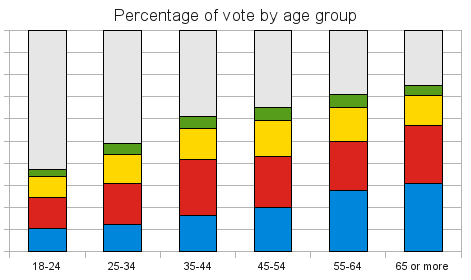UK to Lower Voting Age to 16 in Historic Electoral Reform

In a landmark decision, the United Kingdom government has announced plans to lower the voting age from 18 to 16, a pivotal change expected to empower approximately 1.6 million young citizens in the upcoming national elections scheduled for 2029. This reform, touted as the most significant electoral adjustment since 1969 when the voting age was reduced from 21 to 18, marks a critical shift in the UK’s democratic landscape.
Prime Minister Sir Keir Starmer emphasized the importance of this change, stating, "They’re old enough to go out to work, they’re old enough to pay taxes … and I think if you pay in, you should have the opportunity to say what you want your money spent on, which way the government should go" (ABC News, 2025). This initiative aims to enhance civic engagement among youth and restore trust in democratic institutions, which has been waning due to historically low voter turnout rates.
Currently, 16-year-olds are allowed to vote in local and devolved elections in Scotland and Wales, but not in England or Northern Ireland. The proposed legislation, awaiting parliamentary approval, will not only permit younger voters to participate in all UK elections but will also introduce new voter ID requirements, allowing UK-issued bank cards as acceptable forms of identification.
The move comes at a time when voter participation in the UK has reached alarming lows; the last general election saw only 59.7% of eligible voters exercising their right, the lowest turnout since 2001 (House of Commons Library, 2024). In light of this, the Labour Party's majority in Parliament makes the passage of this legislation highly probable.
Some critics, notably from the Conservative Party, have expressed concerns regarding the implications of granting voting rights to those under 18. Paul Holmes, the party's spokesman on community matters, labeled the proposal as "hopelessly confusing," pointing out the contradictions inherent in allowing young people to vote but not to engage in other legal responsibilities such as purchasing alcohol or entering into contracts (ABC News, 2025).
Moreover, Nigel Farage, leader of the right-wing Reform UK party, articulated his opposition to the proposal, arguing that it is inconsistent for individuals not eligible to stand as candidates to have voting rights. Under current UK law, candidates must be at least 18 years old, prompting concerns about the maturity and preparedness of younger voters to make informed electoral decisions.
Supporters of the change, including political sociologist Dr. Christine Huebner from the University of Sheffield, argue that lowering the voting age has been correlated with increased trust in democratic processes. Dr. Huebner noted that countries like Austria and Brazil have experienced heightened civic engagement and trust levels among younger voters following similar reforms. She stated, "If young people see that their votes are taken seriously, that they have a voice in the political process, they are likely to show higher trust in democratic institutions" (University of Sheffield, 2025).
The implications of this electoral reform extend beyond mere participation; they touch upon the broader context of civic education and engagement strategies aimed at young voters. With effective initiatives, the government hopes to foster a politically informed generation that actively participates in shaping their future through the ballot box.
As the UK prepares for this historical shift, experts will be watching closely to assess the impact of these reforms on voter turnout and the overall health of the nation’s democracy. With the next general election on the horizon, the inclusion of 16 and 17-year-olds in the electoral process could signify a new era of political engagement in the UK, ultimately reshaping the landscape of British democracy for years to come.
Advertisement
Tags
Advertisement




